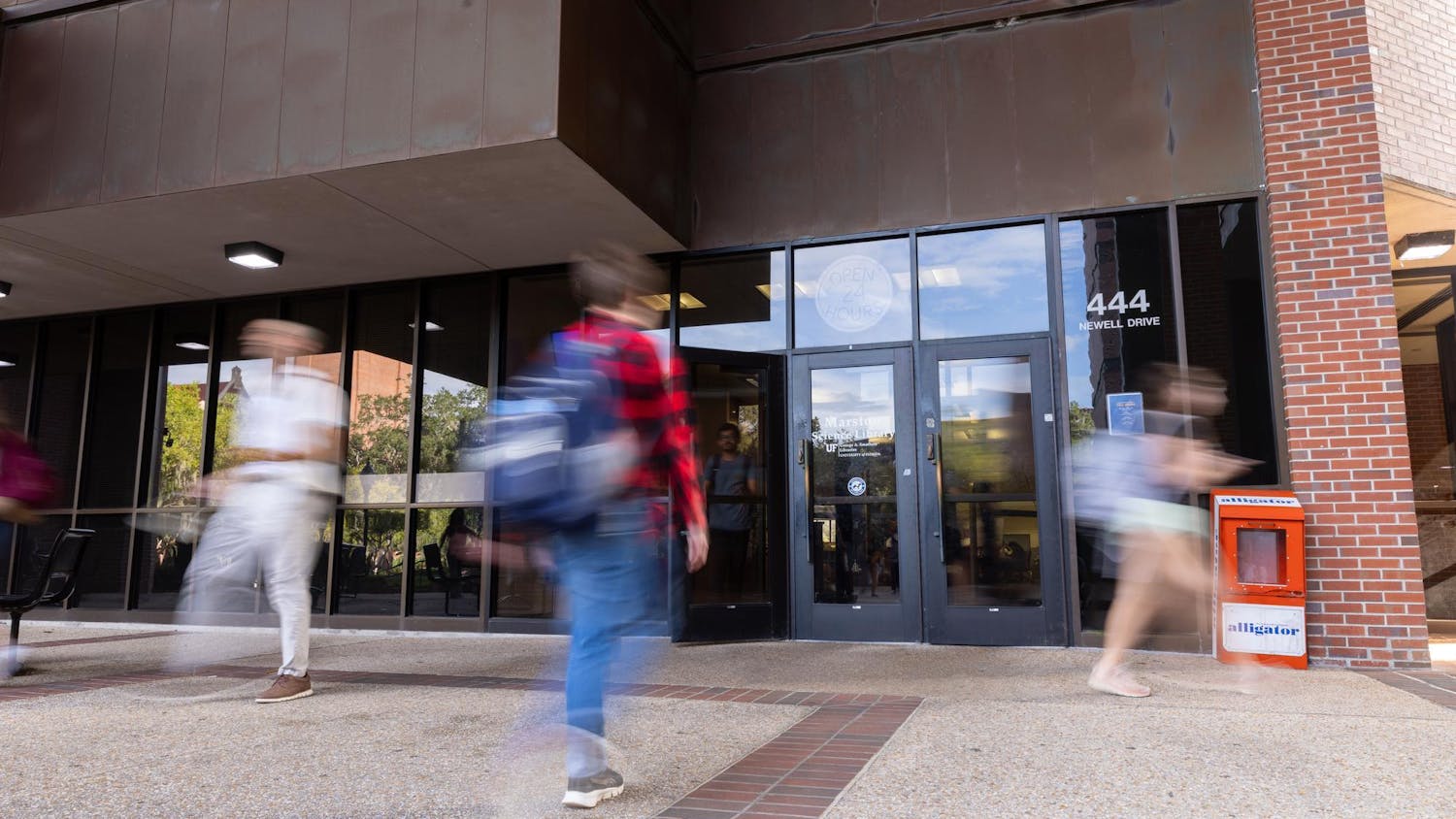It started out innocently enough. Built in 1910, Newell Hall is the third oldest building on campus and, by virtue of its age, was vacant for the better part of the current century due to not meeting modern building standards.
Per the Newell Hall website, “in 2009 and 2011, students at the University of Florida who completed the Student Experience in the Research University (SERU) Survey listed study space as the single most important thing their university could do to better their educational experience” which led former Student Body President TJ Villamil to pitch the idea of a “Library without Books” to administrators. After many years of lobbying by subsequent SG administrations, the state legislature provided funds for Newell’s renovation, supplemented with funds from former UF President Bernie Machen.
But now with a fancy new building comes fancy new costs. To boost Library West’s hours to 24/7 status, SG traditionally provided additional funding, but then we cut most of the support to start paying for Newell Hall.
Naturally, there was plenty of controversy back when we first cut Library West’s hours, so our provost helped fund a pilot program to measure utilization of both Library West and Newell this past year in order for SG to be able to make an informed decision about what to do. This resulted in one survey and two studies, none of which were ever released by SG to the full Senate nor the public. In fact, we’re all probably finding out about this at the same time, which is almost two months after our SG administration made the decision to not fund Library West’s overnight hours.
For what it’s worth, by addressing the lack of seating and the lack of public computers, SG is addressing two of the biggest issues that the study found. However, many people will be quick to point out that Newell just won’t be the same as a library. Some students still benefit from physical access to texts not available online; our “Library without Books” would be little help to some of those who conduct research into the night. I also can’t easily see us somehow erecting any new study rooms in Newell to make it anywhere on the same scale as either of our libraries.
So does funding Newell Hall while cutting hours at Library West actually make for more study space? Let’s try something completely useless and arbitrary to take a stab at answering that question. The whole reason for the decision was the desire for more “study space,” so let’s make up a metric. I propose the “seat-hour” which is simply having a single seat for an hour’s time. The study pegs Newell Hall’s capacity at 365 seats, which if Newell is 24/7 (assuming 365 days a year, which we all know is not true since we all know what happens during football games), would mean 365 seats times 24 hours times 365 days to get 3,197,400 “seat-hours.” Library West’s capacity is 1,600 seats, which means, with the same math, you get 14,016,000 “seat-hours” for a stand-alone year of Library West being 24/7. This 14 million “seat-hour” figure is the status quo, or how things were before Newell (of course, this is assuming all the other libraries’ hours were constant/weren’t affected by Newell’s opening).
Nowadays, Library West won’t be 24/7 anymore, so if we assume an uncomfortably generous operating time of 8 a.m. to 2 a.m. for every day of the week for a year, you instead get 10,512,000 “seat-hours.” Add the 3,197,400 “seat-hours” from running Newell’s 24/7 concurrently, and then you’ll realize that after all this fuss, we actually have “less study space” compared to had we not funded Newell Hall and just funded Library West 24/7 for good.
But why not simply fund both 24/7? It’s complicated, and I’ll try to go into what I know about occupancy and finances next week.
Read the final study at goo.gl/TBZfdW.
Questions, comments or concerns? Email me at zchou@ufl.edu.
Zachariah Chou is a UF political science junior and Murphree Area Senator. His column focuses on Student Government.





